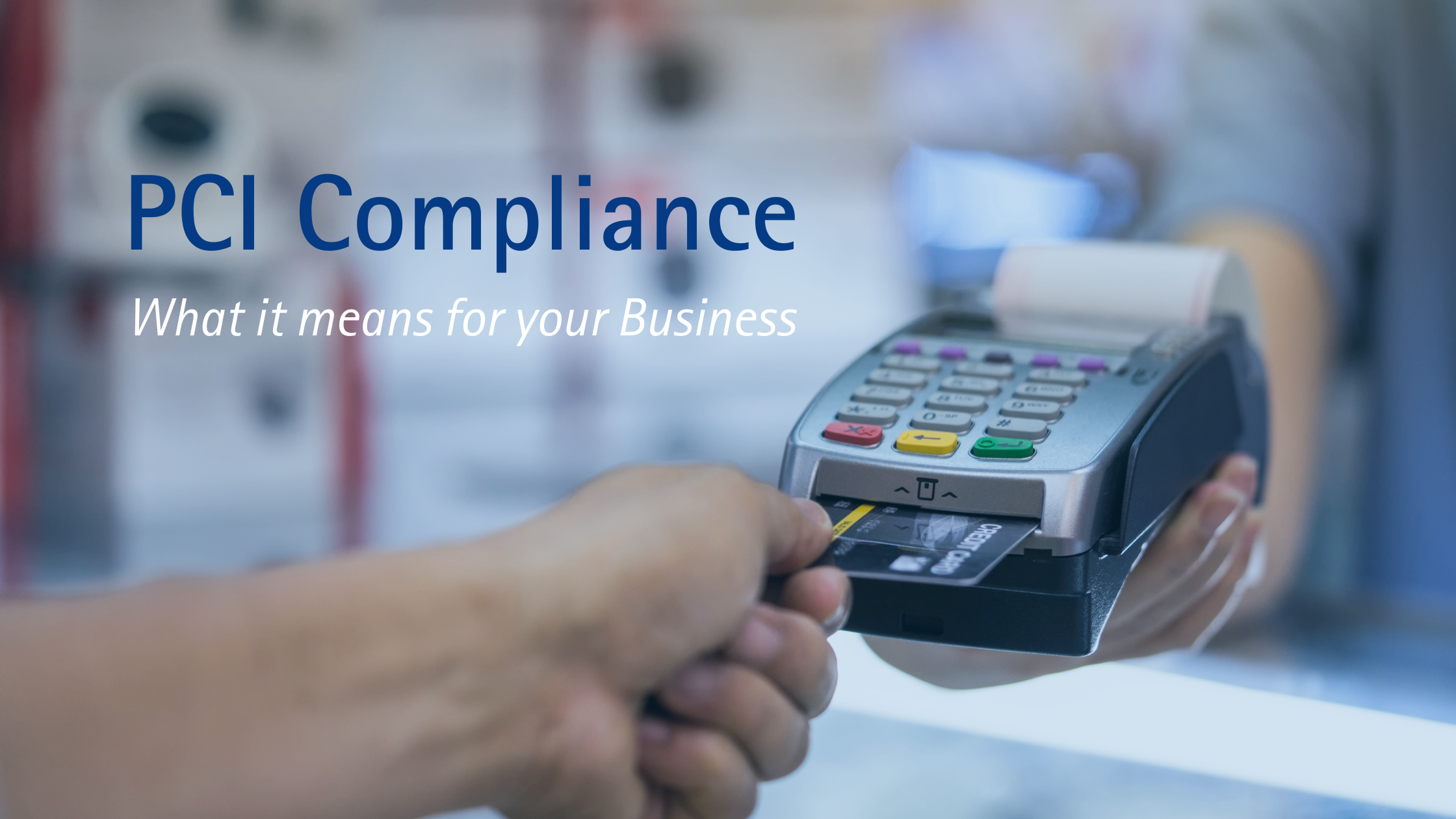What Is PCI Compliance?
The Payment Card Industry Data Security Standard (PCI DSS) is a set of security standards developed by the major credit card companies (Visa, Mastercard, Discover, and American Express) and governed by the PCI Security Standards Council (PCI SSC). The goal is simple: ensure that all companies that process, store, or transmit credit card information maintain a secure environment.
There are 12 core requirements, including maintaining a secure network, protecting cardholder data, implementing strong access control, and regularly testing security systems.
Who needs to be PCI Compliant?
If your business accepts, processes, or stores credit card data, whether you’re a retail store in Florence, a restaurant in Hyde Park, or a contractor working across the tristate region, you must comply with PCI DSS. The requirements apply regardless of your size or transaction volume, though the validation method varies based upon the annual transaction volume.
Why it matters for accounting:
PCI compliance isn’t just a tech department issue — it impacts financial reporting, internal controls, and risk management. From an accounting perspective:
Non-compliance can result in significant monthly fines from your payment processor — sometimes as high as $100,000.
A breach can lead to chargebacks, legal fees, forensic audits, and damage to goodwill that’s not easily quantifiable.. PCI Compliance is increasingly scrutinized during audits, especially for companies subject to compliance reporting or due diligence in M&A deals.
Local Business Risks:
Cincinnati-based businesses face the same threats as national retailers. Small and mid-sized merchants are often more vulnerable because they may lack robust IT and PCI compliance resources. According to the 2024 Verizon Payment Security Report, only 43% of organizations maintained full PCI compliance in their last audit.
For our regional clients, we’ve seen PCI gaps arise during cloud migrations, third-party POS upgrades, and mobile payment rollouts. In each case, the cost of retroactive fixes far exceeded the cost of proactive PCI compliance.
Best Practices for Staying PCI Compliant
- Limit the scope of your PCI environment by segmenting cardholder data from the rest of your systems.
- Conduct regular vulnerability scans with an Approved Scanning Vendor (ASV).
- Complete the appropriate Self-Assessment Questionnaire annually and retain documentation for internal and external audits.
- Work with compliant vendors for e-commerce, payment processing, or accounting systems.
Train your staff to recognize phishing attempts and social engineering tactics.
For help with these four best practices to stay compliant and secure, we are here to support you.

